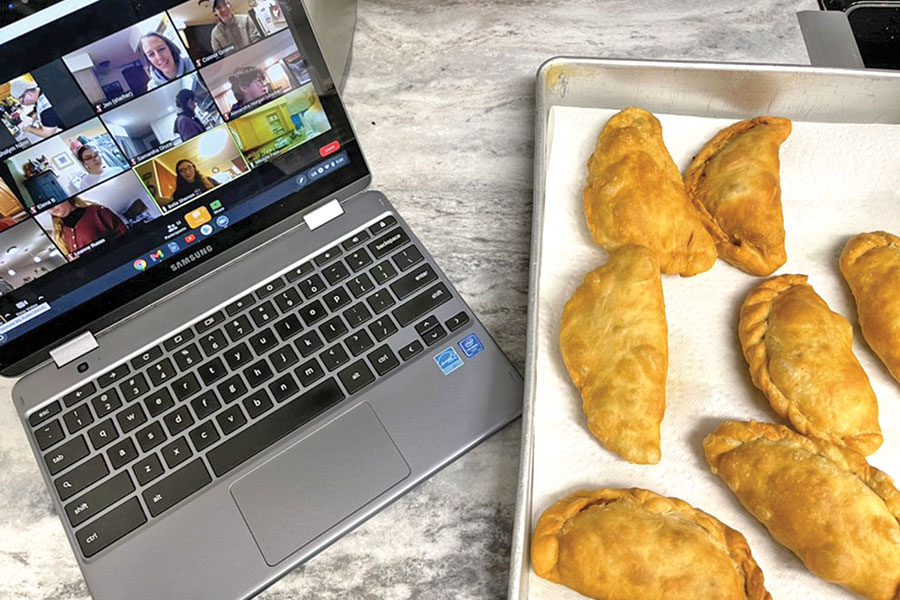GLOBAL COLLEGE
On Break, In Service
The alternative break program continues to link communities and cultures, teaching advocacy and encouraging action.
by Joanie Eppinga

Empanadillas are a Puerto Rican specialty — a large turnover, similar to an empanada but made with a thinner, flakier crust.
“I’m not much of a traveler,” says Margaret Keefer, who graduates this spring with her master’s in higher education student affairs administration.
Then why would Keefer want to be involved with Alternative Breaks, a Nazareth program in which students spend their break being of service in other cities or countries?
Well, this year, because of the COVID-19 pandemic, traveling wasn’t involved. Students still learned about other communities and the challenges they face, through partnerships with global and local nonprofits; but their volunteering took place over Zoom.
So, unlike students on previous alt breaks, this year’s students didn’t travel to Ecuador, Cincinnati, or Puerto Rico. They stayed home. And from their computers, they enhanced community gardens, worked on a food justice library project, and increased access to resources.
“Virtually, we worked with organizations abroad and in the U.S.,” says Connor Groene, a junior majoring in music education. This was Groene’s third experience with alt breaks, and he says each one has been eye-opening.
Having never left the U.S. before, in his freshman year Groene went to Ecuador and helped break down a clay wall so a family-owned business could put a parking lot there. “It was a big learning experience to see another country and its people,” he says.
Groene’s second trip, working in South Dakota with the Sioux YMCA’s youth activities program, was equally inspiring: “The kids would walk from school to the Y, and they’d see your face and light up and grab your hands and take you to a craft they want to do, or tell you stories.” Groene says, “It made it hard to leave because of how much you connect with them.”
Strong connections are also forged between participants on the trips. “We didn’t want it to stop when the break was over,” says Keefer. Groene agrees: “You get to know the other participants in a way I wouldn’t have thought about before. And this year, through team-building and reflections, we could still build that camaraderie that we would normally get from being together.” Jennifer Canning, a program manager at the Center for Civic Engagement who coordinates the alt breaks, had feared that the bonding might not be as strong this year; but she says that at the end of the break, when the leaders said goodbye, “the students looked at each other and asked if they could stay.” She adds, “To have accomplished that virtually, that connection — it made me smile.”
In addition to the relationships, students cherish the advocacy skills they’ve learned and their increased global awareness. This year’s program especially threaded the issues — community youth development and food sustainability — between two regions: Puerto Rico and Rochester.
“For me, the goal was learning more about what it means to be a global citizen in the ways we can look at what we do in our own community and how that can relate to what’s going on in other communities,” says Groene. Keefer agrees: “The big question is, how do we get involved locally?”
Students say that the alt break experience makes the world smaller — and their interior worlds bigger. “It makes you look inside yourself,” Keefer says. “For example, the advocacy panel that spoke to us over Zoom taught me how to be a lifelong active citizen. This experience has changed me forever.”
Joanie Eppinga is a writer and editor in Madison, Wisc.